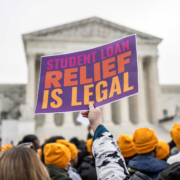Hotels increasingly sharing airlines’ fee addiction – National Consumers League
 Ask practically any flier what their biggest gripes are with airlines and the word “fees” will almost certainly come up. From $25 baggage fees, to $200 change fees, to $50 standby fees and more, fees are big business for the U.S. airlines — bringing in a reported $38 billion (with a “b”) in revenue in 2014 alone. Here at NCL, we’ve voiced plenty of gripes about the fee-based profit model at U.S. airlines, but so far little has changed to break the big U.S. airlines of their addiction to fees.Unfortunately, the hotel industry is increasingly taking a page out of the airlines’ playbook when it comes to socking consumers with add-on fees. As Amy Zipkin’s excellent New York Times piece this week lays out, big hotel chains like Marriott International and Hilton and room-sharing apps like Airbnb and HomeAway are joining the fee trend. Things like $40 last-minute booking fees, $50 cancellation penalties, 6-12% “guest service fees” and mandatory resort fees look like they could become the the norm instead of the exception. It’s not hard to see why. According to New York University professor Bjorn Hanson, hotel fees and surcharges are expected to bring in $2.47 billion (again, with a “b”) in revenue in 2015, up from $2.35 billion only a year earlier.
Ask practically any flier what their biggest gripes are with airlines and the word “fees” will almost certainly come up. From $25 baggage fees, to $200 change fees, to $50 standby fees and more, fees are big business for the U.S. airlines — bringing in a reported $38 billion (with a “b”) in revenue in 2014 alone. Here at NCL, we’ve voiced plenty of gripes about the fee-based profit model at U.S. airlines, but so far little has changed to break the big U.S. airlines of their addiction to fees.Unfortunately, the hotel industry is increasingly taking a page out of the airlines’ playbook when it comes to socking consumers with add-on fees. As Amy Zipkin’s excellent New York Times piece this week lays out, big hotel chains like Marriott International and Hilton and room-sharing apps like Airbnb and HomeAway are joining the fee trend. Things like $40 last-minute booking fees, $50 cancellation penalties, 6-12% “guest service fees” and mandatory resort fees look like they could become the the norm instead of the exception. It’s not hard to see why. According to New York University professor Bjorn Hanson, hotel fees and surcharges are expected to bring in $2.47 billion (again, with a “b”) in revenue in 2015, up from $2.35 billion only a year earlier.
Interestingly, not all experts in the hotel industry think this trend towards more fees is a bad thing. “Hotel reservations have long been way too flexible,” said Christopher K. Anderson, a faculty member at the Cornell University School of Hotel Administration who was quoted in the Times.
We couldn’t agree less with Mr. Anderson. Consumers have long appreciated the flexibility of being able to cancel a hotel reservation without a charge if their plans change at the last minute. The need to make such changes are often outside a consumer’s control (think: death or illness in the family, weather-related flight cancellations, etc.). It is outrageous that a consumer should get socked with a hefty fee through no fault of their own.
While there’s no one single regulator with jurisdiction over hotels, there are steps that consumer protection agencies can take to address the growth in fees. For one, hotel fees should be disclosed more up front both on hotels’ own websites and on online booking websites like Hotels.com, Expedia, Airbnb.com, and others. Ensuring honest advertising is a job for the Federal Trade Commission and state Attorneys General. The Department of Transportation can also play a role by requiring better disclosure when hotels are booked as part of a package with airfare. Earlier this year, NCL testified before the DOT’s Advisory Committee on Aviation Consumer Protection and called on the agency to do just that.
Until that happens, however, consumers themselves need to express their outrage with these new fees directly to the hotels (preferably loudly, frequently, and with their pocketbooks!). If you get hit with a fee that you think is unfair, we want to hear from you! Drop us an email at info@nclnet.org or drop us a line on our Facebook page or on Twitter at @ncl_tweets.























